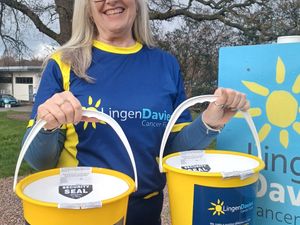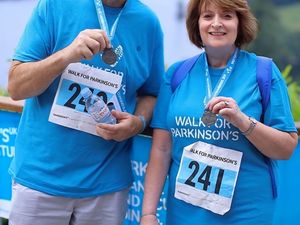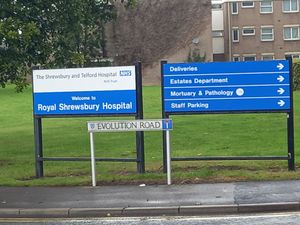Shropshire's Dr Bob's mission to save children
To colleagues and patients at Telford's Princess Royal Hospital, he is affectionately known as 'Dr Bob'. And if you don't know what he looks like, he can often be spotted by the T-shirt he wears bearing his name.
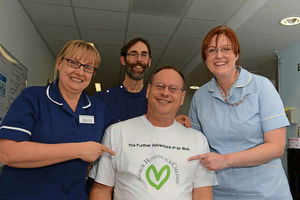
For the past 21 years, Dr Bob Welch has been one of Shropshire's leading experts in caring for newborn babies.
But next month he will be saying a fond farewell to his colleagues in the county — and starting work in one of the toughest environments of the world.
On March 24 the 61-year-old will leave behind his idyllic family home on the outskirts of Shrewsbury, and the multi-million pound cutting-edge technology of the 21st century NHS, and will head for Siem Reap in north-west Cambodia.
Dr Welch joined the staff at the neonatal unit at Royal Shrewsbury Hospital in December 1993, and he moved to Telford's Princess Royal in September last year. During that time, he has been devoted to the care of newborn children, including the specialised care of premature babies. Officially, he retired in October, but agreed to continue working part-time to cover for staff shortages.
"I decided some time ago I was going to retire, there's a lot of bureaucracy in the NHS, and I had had enough of that, and when I heard about the work that was being done at Angkor Hospital I thought it looked like exactly what I was looking for.
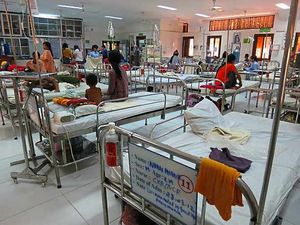
"It seemed a golden opportunity to do some good for the children in Cambodia."
The Angkor Hospital for Children has treated a million patients since it was formed in 1999. At the moment, infant mortality stands around 25 per 1,000 newborns, compared to 66 per thousand 10 years ago. However, this still lags behind the West, with the figure being closer to seven per thousand in Britain. One in every 20 children born in Cambodia will die before their fifth birthday.
Respiratory infections and dirty drinking water are still a major cause of deaths among young children, with anaemia among mothers-to-be another problem.
"There are some relatively simple things we can do that can do that will make a big difference," says Bob, who will spend three months in Cambodia.
"One of the biggest things is preventing the spread of infection, and that is one of the things we will be teaching them."
There is no formal National Health Service in Cambodia, and the hospital is run along charitable lines, in a similar manner to many hospitals in Victorian Britain. The government of Cambodia spends just £8.54 per head on healthcare a year, placing hospitals such as Angkor under great pressure to raise funds.
"Around 85 per cent are treated free of charge, but if people can pay they are asked to make a donation," says Bob.
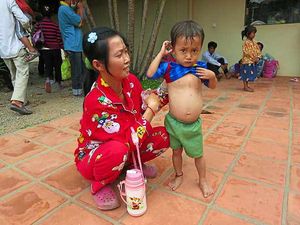
Despite being in a poor country, Bob says the hospital is actually quite well equipped, although it is a long way off from the sort of environment he is used to working in at Telford.
"They get a lot of charitable donations, they have got a lot of stuff which is 10 years old, maybe, but is still working," he says.
"They have a lot of equipment, but they need training in how to make the most of it."
Maintaining and repairing the equipment when it goes wrong is also an issue, and Bob will be travelling with his colleague Peter King, who is a trained electro-biomedical engineer."Peter is very good at maintaining the equipment, and repairing it," says Bob.
"We're also trying to raise money to get a specialist neonatal nurse out there as well, I think that would really make a difference."
Siem Reap is an area of massive contradictions. Over the past decade, the province, which includes the world-famous Angkor Wat temple, has become a magnet for tourism, and the economy has seen massive growth as international investment has flooded in. But beneath the veneer of its shiny shopping malls and plush new hotels, there is still an underbelly of grinding poverty.
One of the biggest problems, though, is the shortage of trained medical staff. A purge on the so-called intelligentsia by former dictator Pol Pot – whose communist Khmer Rouge regime is estimated to have cost 1.5 million lives – left Cambodia with just 50 trained doctors by the time he was ousted in 1979.
For Bob, who will be joined by his wife Christine for the last few weeks of his mission, it will be very much about sharing his expertise with the doctors of Cambodia, helping to improve their practices.
He says: "We're also trying to raise money for medical books to take over with us. I will be teaching them, but they will be teaching me too, about how they manage in a very different environment. I will be learning a lot, I'm sure."


